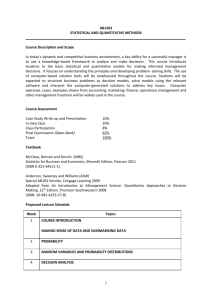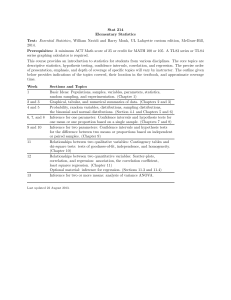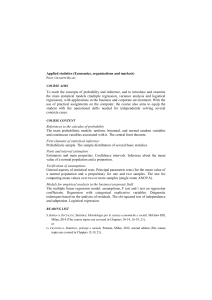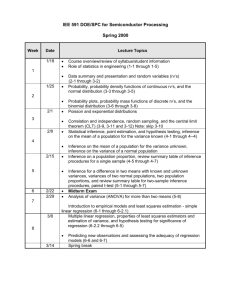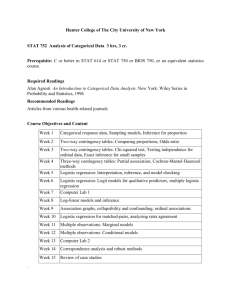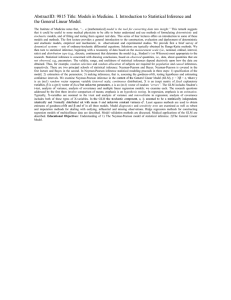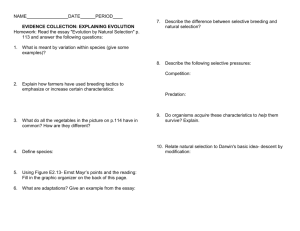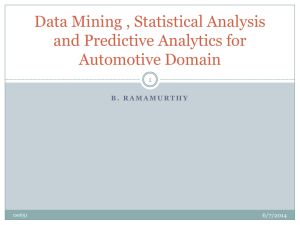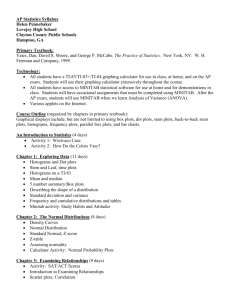Outline
advertisement
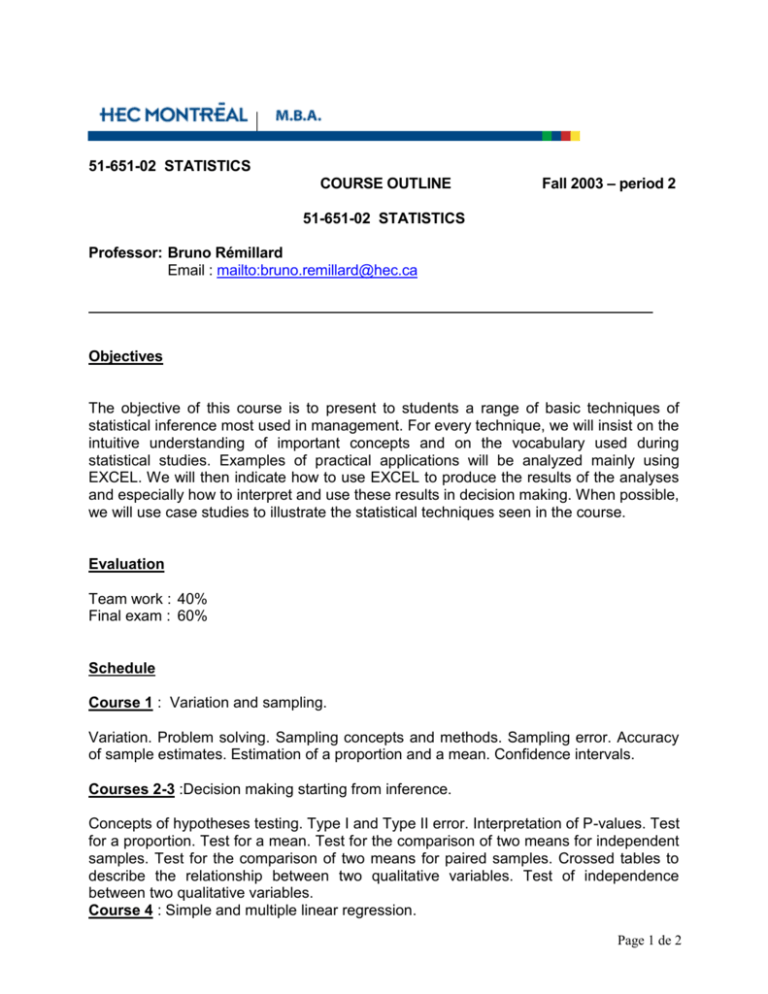
51-651-02 STATISTICS COURSE OUTLINE Fall 2003 – period 2 51-651-02 STATISTICS Professor: Bruno Rémillard Email : mailto:bruno.remillard@hec.ca Objectives The objective of this course is to present to students a range of basic techniques of statistical inference most used in management. For every technique, we will insist on the intuitive understanding of important concepts and on the vocabulary used during statistical studies. Examples of practical applications will be analyzed mainly using EXCEL. We will then indicate how to use EXCEL to produce the results of the analyses and especially how to interpret and use these results in decision making. When possible, we will use case studies to illustrate the statistical techniques seen in the course. Evaluation Team work : 40% Final exam : 60% Schedule Course 1 : Variation and sampling. Variation. Problem solving. Sampling concepts and methods. Sampling error. Accuracy of sample estimates. Estimation of a proportion and a mean. Confidence intervals. Courses 2-3 :Decision making starting from inference. Concepts of hypotheses testing. Type I and Type II error. Interpretation of P-values. Test for a proportion. Test for a mean. Test for the comparison of two means for independent samples. Test for the comparison of two means for paired samples. Crossed tables to describe the relationship between two qualitative variables. Test of independence between two qualitative variables. Course 4 : Simple and multiple linear regression. Page 1 de 2 Simple linear regression model to describe the relation between two quantitative variables. Inference. Interpretation of the model coefficient and correlation coefficient. Multiple linear regression model. Inference. Interpretation of the coefficient of the model. Multiple R-square. Course 5 : Forecasting and Statistical Process Control. Time series. Trends. Seasonal effects. Exponential smoothing. Forecasting accuracy. Statistical process control. Identification of sources of variation. Control charts. Interpretation. Course 6 : Revision. Bibliography There exists several introduction books on statistics. They are all similar. Some of them are available at the HEC library and you can use them as a reading complement for the course. JOHN J.A., D. WHITAKER, DG. JOHNSON (2001). Statistical thinking for managers. Chapman& Hall/CRC, New York. (http://crcpress.com) (In reserve at the library) LIND, D.A., W.G. MARSHAL, R.D. MASON, S.D. GUPTA, S. KABADJI, and J. SINGH, Statistical Techniques in Business and Economics, First Canadian Edition, MacGraw-Hill Ryerson, 2004. (In reserve at the library) Internet StatSoft. Electronic Statistics Textbook http://www.statsoft.com/textbook/stathome.html Keith DEAR. SurfStat Australia. University of Newcastle. (http://www.anu.edu.au/nceph/surfstat/surfstat-home/surfstat.html) David LANE. HyperStat On Line. Rice University. (http://www.davidmlane.com/hyperstat/index.html) Jan DE LEEUW. Statistics : The Study of Stability in Variation. University of California, Los Angeles. (http://www.stat.ucla.edu/textbook/) Page 2 de 2
